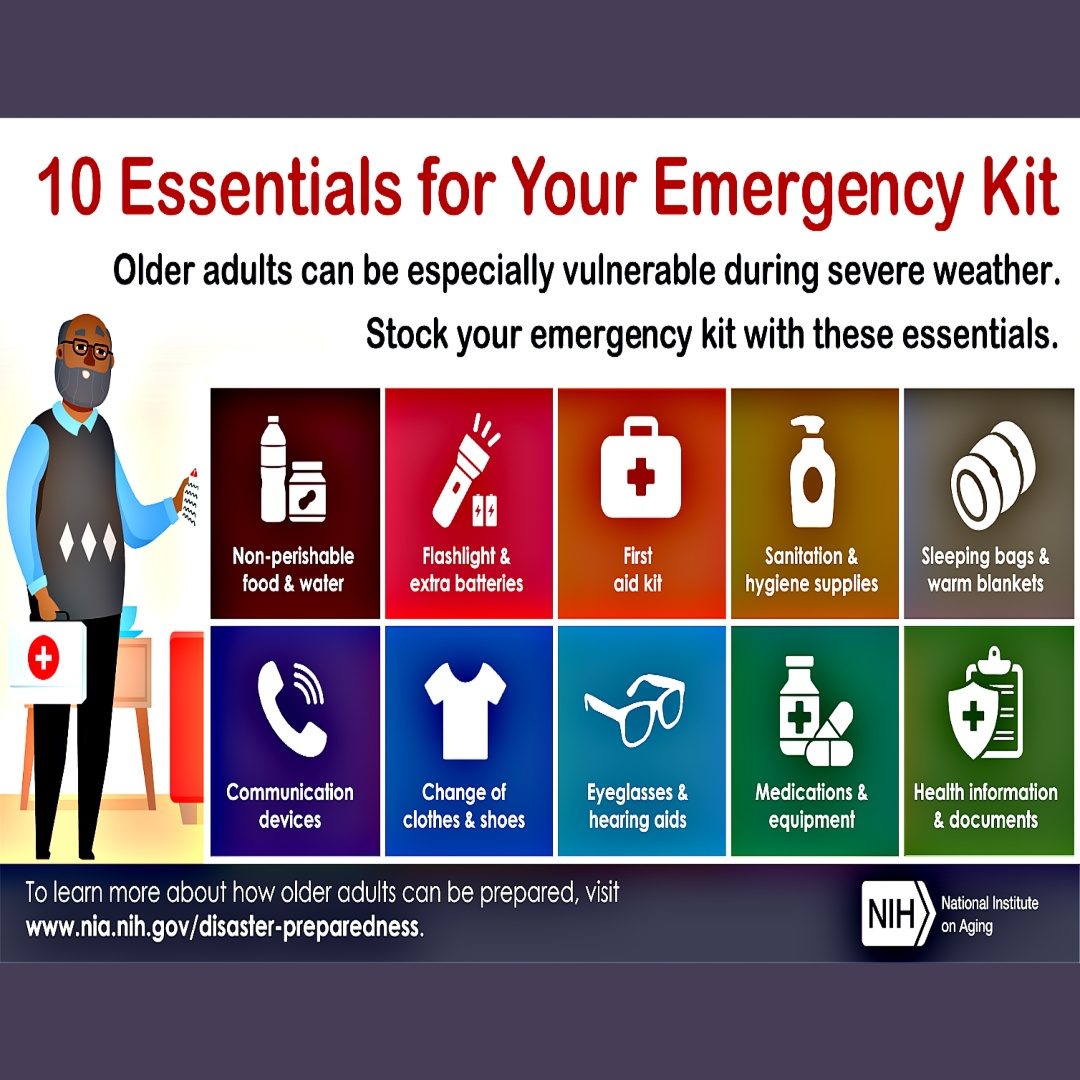“Are you ready to go? Do you have everything?
We are leaving now.” ~Rescue Personnel
Hurricanes, Tornadoes, Snowstorms, Earthquakes, And Other Natural Disasters
Put Us At Risk For Evacuating With Only A Moment’s Notice
“Are you ready to go? Do you have everything?
We are leaving now.” ~Rescue Personnel
Hurricanes, Tornadoes, Snowstorms, Earthquakes, And Other Natural Disasters
Put Us At Risk For Evacuating With Only A Moment’s Notice
1.3K
died from excessive heat events in past year
5
hurricanes, droughts and wildfires, flooding and high winds weather events leading to evacuation orders
100%
older adults at risk for evacuations, climate emergencies, and adverse impact from climate change
Your preparedness is our priority, and having a packed suitcase with essentials is key. I’ll guide you in keeping a suitcase ready with a week’s worth of clothes, toiletries, and personal supplies. Placing it near your main exit ensures quick access during unforeseen circumstances. We’ll regularly review and update the suitcase’s contents to match your current needs. Together, we’ll create a plan that keeps you well-prepared and at ease in any situation.




